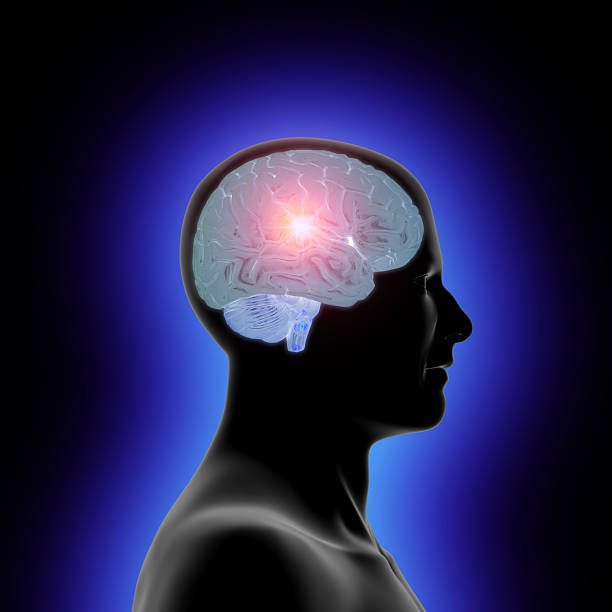Cognitive psychology is one of the most influential and expansive branches of modern psychology. It focuses on understanding the internal mental processes that govern human thought, behavior, and emotion. These processes include perception, memory, language, problem-solving, reasoning, decision-making, and learning. Cognitive psychology seeks to explain how people acquire, process, store, and retrieve information, and how this information guides their actions and understanding of the world.
At its core, cognitive psychology studies how the mind works—how we think about, interpret, and interact with our environment. Unlike behaviorism, which focuses solely on observable behavior, cognitive psychology delves into the unseen mechanisms of the human mind. It explores how mental representations are formed and manipulated, and how they shape our thoughts, judgments, and behavior. This scientific exploration of cognition has profoundly influenced psychology, neuroscience, linguistics, computer science, and even artificial intelligence.
The development of cognitive psychology represents a major turning point in the history of psychological science. It provided a way to scientifically study the mental processes that behaviorism once dismissed as unobservable. Today, it remains at the forefront of psychological research, offering insights into how humans learn, remember, and make decisions, as well as how these processes can break down in disorders such as dementia, dyslexia, and schizophrenia.
The Historical Development of Cognitive Psychology
The roots of cognitive psychology stretch deep into the history of philosophy and early psychology. Philosophers such as Plato and Aristotle debated how humans acquire knowledge—whether through experience or innate reasoning. During the Enlightenment, thinkers like René Descartes and John Locke laid the groundwork for the scientific study of the mind, emphasizing reason and sensory experience.
In the late 19th and early 20th centuries, psychology began to emerge as a distinct scientific discipline. Early psychologists such as Wilhelm Wundt and Edward Titchener used introspection to study the structure of consciousness, asking subjects to describe their thoughts and sensations. However, this approach soon fell out of favor due to its subjectivity and lack of reliable measurement.
By the 1910s, behaviorism had taken over psychology in the United States, led by figures like John B. Watson and later B.F. Skinner. Behaviorists rejected introspection and focused exclusively on observable behavior, arguing that the mind was a “black box” whose internal workings could not be studied scientifically. For decades, behaviorism dominated psychological thought, emphasizing learning through conditioning and reinforcement.
However, the mid-20th century witnessed what became known as the cognitive revolution. Psychologists, linguists, and computer scientists began to challenge the limits of behaviorism, arguing that it could not fully explain complex human behaviors such as language, creativity, and reasoning. In the 1950s and 1960s, researchers like George Miller, Ulric Neisser, Noam Chomsky, and Herbert Simon reintroduced the study of mental processes, inspired by developments in information theory and computer science.
Neisser’s 1967 book Cognitive Psychology formally established the field, defining it as the study of how people acquire, transform, store, and use information. Cognitive psychology thus emerged as a rigorous, experimental science capable of addressing the most intricate workings of the human mind.
The Cognitive Revolution and Its Impact
The cognitive revolution marked a paradigm shift in psychology. It redefined the study of behavior as an inquiry into the information-processing systems of the mind. Cognitive psychologists proposed that the human mind operates much like a computer: it receives input from the environment, processes it through mental operations, and produces an output in the form of behavior or decision-making.
This analogy between the mind and the computer helped psychologists conceptualize cognition as a series of distinct but interconnected stages—perception, attention, memory, and response. The information-processing model allowed researchers to describe mental activities in measurable, testable terms.
The revolution also sparked collaborations between psychology, neuroscience, linguistics, and artificial intelligence. For example, Noam Chomsky’s critique of behaviorist language theories demonstrated that language acquisition could not be explained solely by reinforcement; instead, it relied on innate cognitive structures. Similarly, advances in computer modeling and artificial intelligence provided tools to simulate and study mental processes, deepening our understanding of human cognition.
By integrating experimental methods, computational modeling, and theoretical frameworks, the cognitive revolution established a new scientific foundation for psychology. It transformed the field from one centered on behavior to one focused on understanding the internal mechanisms of thought itself.
The Core Focus of Cognitive Psychology
Cognitive psychology is concerned with the mental operations that underlie behavior. It examines how information is perceived, processed, and used in decision-making and action. Although these processes are complex and often interrelated, they can be understood as distinct areas of study that together define the scope of cognitive psychology.
Perception
Perception is the process by which sensory information is interpreted and transformed into meaningful representations. Cognitive psychologists study how the brain organizes and interprets data from the senses—sight, sound, touch, taste, and smell—to form a coherent understanding of the environment.
Research in perception explores topics such as pattern recognition, visual illusions, depth perception, and auditory processing. For example, the brain’s ability to interpret a two-dimensional image on the retina as a three-dimensional object involves complex cognitive computations. Studies of visual perception reveal how attention, memory, and prior experience influence what we see.
Attention
Attention refers to the ability to selectively focus on certain stimuli while ignoring others. Since the environment constantly bombards us with sensory information, attention acts as a filter that prioritizes what is relevant for current goals. Cognitive psychologists examine how attention is allocated, sustained, and divided among tasks.
Theories of attention, such as the filter theory by Donald Broadbent and the feature integration theory by Anne Treisman, describe how information is processed at different stages and how limited cognitive capacity affects performance. Attention plays a central role in nearly all cognitive tasks, influencing learning, memory, and decision-making.
Memory
Memory is one of the most studied areas in cognitive psychology. It encompasses the processes of encoding, storing, and retrieving information. Memory allows individuals to retain past experiences and use them to guide future behavior. Cognitive psychologists categorize memory into different systems: sensory memory, short-term (or working) memory, and long-term memory.
Research has shown that memory is not a perfect recording device but a constructive system that actively organizes and sometimes distorts information. The work of researchers like George Miller, who discovered the capacity limit of short-term memory (the “magic number seven”), and Alan Baddeley, who developed the model of working memory, has shaped modern understanding of memory’s structure and function.
Language and Thought
Language is a uniquely human ability that enables communication, abstract thinking, and cultural development. Cognitive psychology studies how language is acquired, comprehended, and produced, as well as how it interacts with other mental processes.
Noam Chomsky’s work on generative grammar revolutionized the field by proposing that humans possess an innate language faculty. Cognitive psychologists investigate how words are recognized, how sentences are structured, and how meaning is constructed from linguistic input. They also explore the relationship between language and thought—a topic central to debates about whether language shapes cognition or merely reflects it.
Problem-Solving and Reasoning
Cognitive psychology also explores how people solve problems, make decisions, and reason about complex situations. Problem-solving involves identifying a goal, generating possible solutions, and selecting and implementing the best one. Researchers like Herbert Simon and Allen Newell introduced the concept of heuristics—mental shortcuts that simplify decision-making but can sometimes lead to biases or errors.
Reasoning, on the other hand, involves drawing conclusions from available information. Cognitive psychologists distinguish between inductive reasoning (inferring general principles from specific examples) and deductive reasoning (applying general principles to specific cases). The study of decision-making has expanded into behavioral economics, examining how cognitive biases, emotions, and social influences affect human judgment.
Learning and Knowledge Representation
Learning is the process by which experience changes behavior or understanding. Cognitive psychology investigates how knowledge is acquired and represented in the mind. Concepts, categories, and schemas are mental structures that organize knowledge and influence perception and memory.
Research in this area examines how people form new concepts, how they generalize from examples, and how prior knowledge shapes new learning. Theories such as constructivism suggest that learners actively build understanding rather than passively absorb information. This insight has profoundly influenced educational psychology and instructional design.
The Relationship Between Cognitive Psychology and Neuroscience
Although cognitive psychology began as a study of the mind’s abstract processes, advances in neuroscience have bridged the gap between mind and brain. Cognitive neuroscience—a field that combines psychology, biology, and neuroscience—aims to uncover the neural mechanisms underlying cognitive functions.
Using technologies such as functional magnetic resonance imaging (fMRI), electroencephalography (EEG), and magnetoencephalography (MEG), researchers can now observe brain activity associated with perception, memory, language, and decision-making. For instance, studies have shown that the hippocampus plays a critical role in memory formation, while the prefrontal cortex is involved in executive functions like planning and attention.
This integration of psychology and neuroscience allows scientists to map mental processes onto specific neural networks. Cognitive neuroscience thus provides a biological foundation for the theories of cognitive psychology, linking mental representations to brain activity.
Models and Theories in Cognitive Psychology
Cognitive psychology relies heavily on theoretical models to describe how information is processed in the mind. One influential model is the information-processing approach, which conceptualizes cognition as a sequence of stages through which information flows. This model includes sensory input, attention, encoding, storage, retrieval, and output.
Another important framework is the connectionist model, or parallel distributed processing (PDP) model, which represents cognitive processes as networks of interconnected units, similar to neurons in the brain. These models suggest that cognition emerges from the interactions among many simple units operating in parallel, rather than from a single central processor.
Dual-process theories have also become prominent, proposing that the mind operates through two distinct systems: a fast, automatic, intuitive system and a slower, more deliberate, analytical one. These theories explain why people sometimes make quick judgments or fall prey to cognitive biases, and why more effortful reasoning is required for complex problems.
Cognitive Development Across the Lifespan
Cognitive psychology also examines how thinking changes over time—from infancy to old age. Developmental psychologists, most notably Jean Piaget, studied how children’s cognitive abilities evolve through distinct stages. Piaget proposed that children actively construct their understanding of the world through interaction and experimentation, progressing from sensorimotor exploration to abstract reasoning.
Later researchers, such as Lev Vygotsky, emphasized the social and cultural influences on cognitive development. Vygotsky’s concept of the “zone of proximal development” highlighted the importance of guidance and social interaction in learning.
In adulthood, cognitive functions continue to evolve, with some abilities such as vocabulary and knowledge remaining stable or improving, while others like processing speed and memory may decline with age. Understanding these developmental patterns has implications for education, aging, and mental health interventions.
Cognitive Psychology in Everyday Life
Cognitive psychology has practical applications in nearly every aspect of human life. In education, insights into learning, memory, and attention help improve teaching methods and curriculum design. Cognitive principles are used to develop effective study strategies, enhance problem-solving skills, and promote critical thinking.
In healthcare, cognitive psychology informs therapies for mental disorders. Cognitive-behavioral therapy (CBT), one of the most effective psychological treatments, is based on the idea that changing maladaptive thought patterns can improve emotional well-being and behavior.
In technology, cognitive psychology guides the design of user interfaces, artificial intelligence, and virtual environments. Understanding how people perceive and process information helps developers create intuitive and efficient systems.
In law and public policy, research on memory and decision-making has shaped our understanding of eyewitness testimony, jury decision-making, and risk perception. Cognitive psychology also plays a role in marketing, communication, and human-computer interaction.
Cognitive Biases and Limitations of the Mind
While cognitive psychology celebrates the power of human thought, it also recognizes the mind’s limitations. Humans rely on heuristics—mental shortcuts that simplify complex decisions but can lead to systematic errors, known as cognitive biases. Examples include confirmation bias, where people favor information that supports their beliefs, and availability bias, where judgments are influenced by easily recalled examples.
Research on these biases, pioneered by Daniel Kahneman and Amos Tversky, has revealed that human reasoning often deviates from rational models. These findings have reshaped economics, politics, and behavioral science, showing that cognitive psychology is not only about understanding thought but also about understanding its imperfections.
Cognitive Disorders and Dysfunction
Cognitive psychology also investigates disorders that disrupt normal mental functioning. Conditions such as Alzheimer’s disease, dementia, aphasia, and dyslexia provide valuable insights into how cognition is organized in the brain. Studying these disorders helps scientists understand which brain regions and networks are responsible for specific cognitive functions.
Neuropsychological research, for example, has shown that damage to the hippocampus impairs memory consolidation, while injury to the Broca’s area disrupts speech production. Cognitive deficits are also common in psychiatric disorders such as depression and schizophrenia, where impairments in attention, working memory, and executive function are observed.
Understanding these dysfunctions not only aids diagnosis and treatment but also advances theoretical models of normal cognition by highlighting what happens when specific systems fail.
The Interdisciplinary Nature of Cognitive Psychology
Cognitive psychology does not exist in isolation; it intersects with many other disciplines. Cognitive science, an interdisciplinary field encompassing psychology, neuroscience, computer science, linguistics, and philosophy, aims to provide a unified understanding of mind and intelligence. Artificial intelligence, for instance, draws on cognitive principles to design systems capable of learning, reasoning, and problem-solving.
Linguistics contributes to understanding how language structures thought, while philosophy raises questions about consciousness, free will, and the nature of mental representation. Cognitive anthropology examines how culture shapes thought and perception, while cognitive neuroscience grounds these processes in the biology of the brain.
This interdisciplinary collaboration has enriched cognitive psychology, making it one of the most dynamic and rapidly evolving areas of scientific inquiry.
The Future of Cognitive Psychology
As technology advances, cognitive psychology continues to expand into new frontiers. The integration of artificial intelligence, brain imaging, and computational modeling allows for more precise simulations of mental processes. Machine learning algorithms inspired by human cognition are now helping scientists analyze massive datasets and uncover patterns that were once beyond human reach.
Future research aims to bridge the gap between cognitive psychology and consciousness studies, exploring how subjective experiences arise from neural processes. There is also growing interest in applying cognitive principles to enhance creativity, emotional intelligence, and human-computer interaction.
Moreover, as society faces challenges such as misinformation, mental health crises, and digital overload, cognitive psychology offers valuable tools for understanding and improving human decision-making, attention, and well-being.
Conclusion
Cognitive psychology stands as one of the most important pillars of modern psychological science. It provides a systematic framework for understanding how humans perceive, think, learn, and remember. By studying the invisible workings of the mind, cognitive psychology has reshaped our understanding of human nature and revolutionized fields ranging from education and medicine to artificial intelligence and economics.
At its essence, cognitive psychology is the science of the mind—the exploration of how knowledge is formed, organized, and used to make sense of the world. Its discoveries illuminate both the power and the limitations of human thought, reminding us that our perceptions, memories, and decisions are products of a remarkable, complex, and ever-evolving cognitive system. Through its continued study, we move closer to answering one of the most profound questions of all: how does the mind create the experience of being human?






